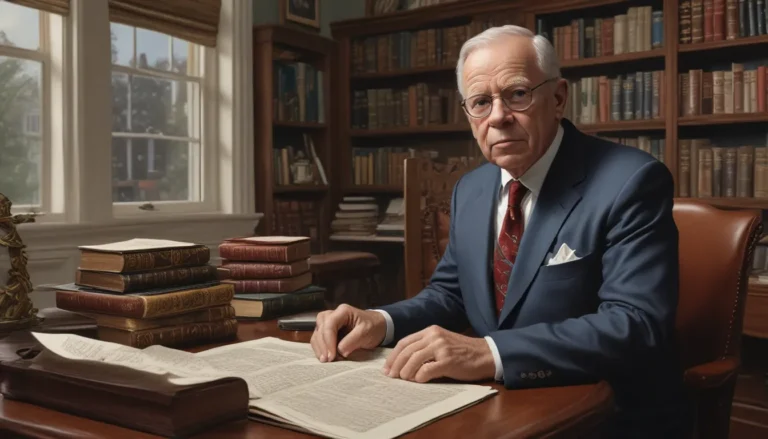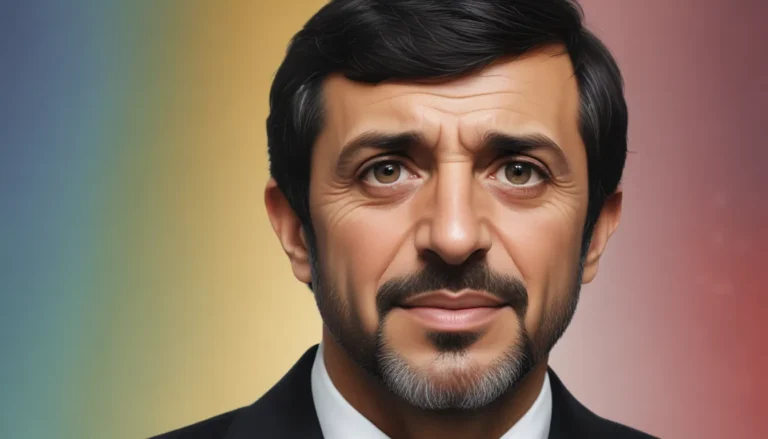The images in our articles may not match the content exactly. They are used to grab your attention, not to show the exact details in the text. The images complement the text but do not replace it.
Are you curious about the profound impact of Emmanuel Lévinas on the realms of ethics and phenomenology? Dive into the captivating life and work of this influential philosopher as we explore intriguing facts that shine a light on his contributions to the world of philosophy. From his early experiences to his groundbreaking concepts, we will uncover the essence of Emmanuel Lévinas and how his ideas continue to resonate with us today.
Unveiling Emmanuel Lévinas: A Glimpse into His Life
Emmanuel Lévinas, born in Lithuania in 1906, eventually found his way to France, where his Jewish heritage played a pivotal role in shaping his philosophical perspectives. His upbringing laid the foundation for his profound ethical theory, influencing his views on responsibility and human relationships.
Nurturing Philosophical Roots: The Influence of Edmund Husserl
Studying under the esteemed thinker Edmund Husserl, Lévinas delved into the realms of phenomenology, exploring the intricate dynamics of the subject-object relationship and the essence of consciousness. This intellectual journey under Husserl’s guidance molded Lévinas’s philosophical thought and left a lasting impact on his work.
The Crucible of Experience: The Holocaust and its Aftermath
The haunting shadow of the Holocaust loomed large in Lévinas’s life, profoundly shaping his philosophical evolution. Witnessing the horrors of that dark period catalyzed his focus on ethical responsibility, compelling him to champion the cause of recognizing the vulnerability and humanity of others.
Unveiling the Concept of the Face-to-Face Encounter
Central to Lévinas’s philosophy is the notion of the “face-to-face” encounter, a profound moment of ethical significance when we are met with the uniqueness and vulnerability of another individual. This encounter beckons us to respond to the needs of the Other, emphasizing compassion and justice in our interactions.
Embracing the Other: The Source of Ethical Imperatives
In Lévinas’s philosophical framework, true ethical responsibility emerges when we prioritize the needs of the Other above our self-interest. This emphasis on recognizing the humanity and uniqueness of each individual compels us to engage in acts of compassion and justice, reflecting a deep commitment to ethical living.
Bridging Theory and Practice: Philosophy as an Ethical Discourse
Lévinas challenged the notion of philosophy as a purely theoretical pursuit, advocating for a practical discourse grounded in ethics. His emphasis on living ethically and taking responsibility for others underscores the significance of tangible actions over abstract debates in the realm of philosophy.
Dismantling the Paradigms: The Critique of Totality and the Infinite
Lévinas critiqued the prevailing fixation of Western philosophy on totality and the infinite, advocating for an ethical framework rooted in the finite and the particular. By prioritizing personal encounters and relationships over abstract notions, he highlighted the essence of individual connections in ethical discourse.
The Tapestry of Influence: Exploring Lévinas’s Dialogues
Engaging in thought-provoking dialogues with prominent philosophers like Jacques Derrida and Maurice Blanchot, Lévinas enriched the philosophical landscape with new ideas and perspectives. These exchanges fueled the development of innovative philosophical concepts, fostering a robust discourse on ethics and responsibility.
Embracing Diversity: The Influence of Judaism on Lévinas’s Philosophy
Deeply entrenched in his Jewish heritage, Lévinas integrated timeless ethical teachings from Judaism into his philosophical tapestry. Themes of responsibility, justice, and the sanctity of the Other permeate his work, offering a unique lens through which to explore ethical philosophy.
An Existential Mélange: Lévinas’s Roots in Existentialism
Despite his affiliation with phenomenology, Lévinas drew upon existentialist influences, notably from thinkers like Jean-Paul Sartre. This fusion of phenomenological and existentialist ideas contributed to the richness and distinctiveness of Lévinas’s ethical philosophy, offering a nuanced perspective on human existence.
Enduring Impact: Unpacking Lévinas’s Legacy
Emmanuel Lévinas’s philosophical oeuvre continues to wield a profound influence across disciplines such as ethics, philosophy of religion, and political theory. His emphasis on ethical responsibility towards the Other has sparked vibrant debates and inspired scholars to delve into the intricacies of human ethics and interactions.
Navigating Critiques and Controversies: The Ongoing Discourse
Like all pioneering thinkers, Lévinas’s ideas have not been immune to criticism and controversy. Some have raised concerns about the potential neglect of individual autonomy and selfhood in his philosophy, prompting ongoing reflections on ethical theories and human relationships.
Reflecting on Lévinas’s Enigmatic Legacy: A Conclusion
In conclusion, Emmanuel Lévinas’s legacy stands as a beacon in the realms of ethics and phenomenology, illuminating the path towards ethical living and human connection. Through his profound insights on the Other and ethical responsibility, Lévinas challenges us to embrace the uniqueness and dignity of others, fostering a world infused with compassion and justice.
Unveiling the Mystique: Frequently Asked Questions
Q: What were Emmanuel Lévinas’s key philosophical contributions?
A: Emmanuel Lévinas made significant strides in the realms of ethics and phenomenology, particularly with his emphasis on the ethical responsibility towards others and the concept of the Other.
Q: How did Emmanuel Lévinas differentiate himself from his contemporaries?
A: Lévinas’s focus on prioritizing ethics over epistemology set him apart from traditional philosophical paradigms, underscoring the importance of human relationships and ethical engagements.
Q: What lies at the heart of Lévinas’s concept of the Other?
A: Lévinas’s concept of the Other underscores our ethical responsibility towards recognizing and honoring the individuality and autonomy of others, directing us towards compassionate and just actions.
Q: How has Lévinas’s philosophy influenced contemporary dialogues?
A: Lévinas’s philosophy continues to shape discussions on ethics, alterity, and the ethical implications of our decisions and actions, inviting a deeper exploration of ethical relationships and responsibilities.
Q: Where can I discover more about Emmanuel Lévinas’s works?
A: Libraries, online research databases, and publications by Lévinas scholars offer valuable resources to explore the rich tapestry of Emmanuel Lévinas’s philosophical works, unraveling the complexities of his ethical philosophy.
Engage with the enigmatic world of Emmanuel Lévinas and his profound philosophical insights. Step into the realm of ethical responsibility, human connection, and the essence of the Other, embarking on a journey of intellectual enrichment and deep reflection. Let the legacy of Lévinas inspire you to ponder life’s profound questions and engage in meaningful dialogues on ethics, compassion, and justice. Explore and expand your intellectual horizons with the timeless wisdom of a towering philosopher.






